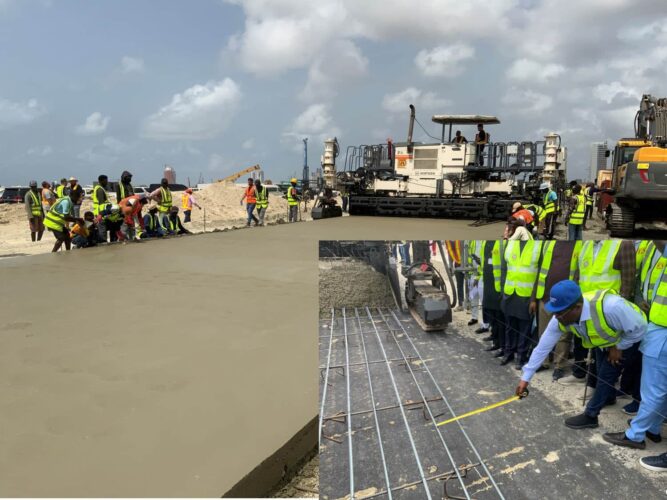The federal government has decided to stop and redirect the realignment of the Lagos-Calabar coastal road project, thereby protecting telecommunications infrastructure and submarine cables in the affected area. A presidential directive has saved MTN's submarine cables and workstations in the Okun-Ajah community from demolition after a thorough Environmental Impact Assessment (EIA) review.
The Minister of Works, David Umahi, discussed the issue at a stakeholder meeting in Lagos, focusing on compensation and the EIA for the coastal road project. He informed community groups and traditional leaders, particularly in the Okun-Ajah community, about the changes.
Previously, the Okun-Ajah community had raised concerns about the proposed changes to the highway route, which threatened six villages and could displace three traditional kings if not addressed. Umahi emphasized the importance of redesigning the route to preserve the 600-year-old heritage of the Okun-Ajah community. He praised the president's efforts to modify the alignment to protect properties and infrastructure in the area.
According to Umahi, the original alignment would have required demolishing over 750 houses, while the new alignment, following an EIA, would affect 450 houses. The project underwent rigorous approval processes, including certification by the Bureau of Public Procurement (BPP) and consideration by the Federal Executive Council (FEC).
Umahi stressed that property removal will follow legal procedures, and only owners with verified titles will receive compensation. Iliyasu Abdullah, CEO of Machine and Equipment Consortiums Africa, highlighted the significance of the 17-year-old critical infrastructure in the Okun-Ajah community, praising the government's efforts to protect these essential national assets.









